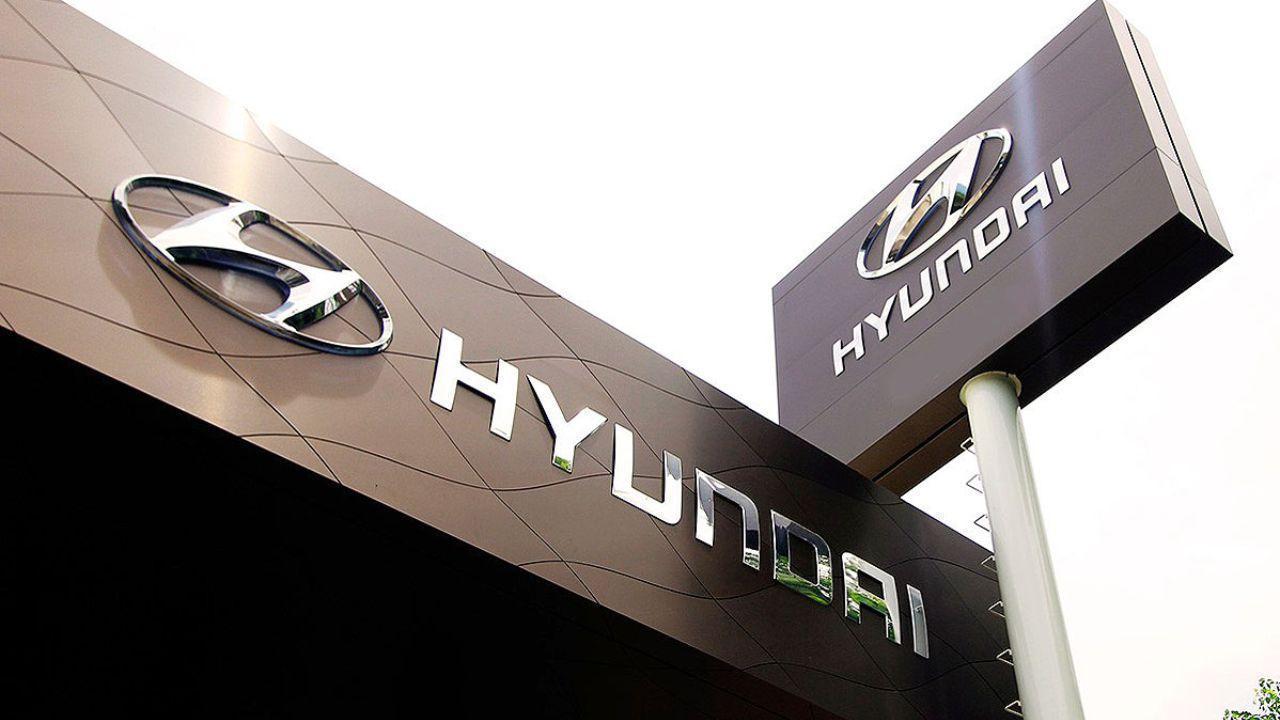
Post by : Avinab Raana
Photo : X / BusinessWorld
Raid Disrupts Battery Plant Timeline
Hyundai has announced that its major joint venture battery plant in Georgia will face a startup delay of at least two to three months following a large immigration enforcement operation. The plant, a joint project with South Korea’s LG Energy Solution, was expected to begin operations later this year. The unexpected raid has upended construction schedules, labor availability, and equipment validation, all causing the delay.
The incident marks a serious setback in Hyundai’s strategy to scale up electric vehicle (EV) components domestically. Building battery supply chain capacity is central to Hyundai’s EV ambitions, especially with rising demand for electric models. With this delay, Hyundai will need to adjust its short-term procurement and supply plans to compensate.
Immigration Raid at Construction Site
The disruption stems from a large immigration raid at the Georgia battery plant construction site. Enforcement officers detained close to 475 workers, many of whom were specialists or skilled personnel sourced via supply-chain suppliers connected with LG Energy Solution. These workers were not direct employees of Hyundai, but their roles are essential, particularly during construction and equipment commissioning phases.
Many of these detained workers were from overseas, primarily South Korea, and had been working under various visa statuses. Following the operations, some workers are being repatriated while others await resolution of their immigration status. Hyundai has acknowledged the detection of visa irregularities among several subcontractors.
Why the Delay Is Inevitable
Construction of a large battery complex is a highly technical endeavor, requiring specialized skills for installing, calibrating, and validating the equipment. When those individuals are removed, it causes gaps that cannot be filled easily or locally. Hyundai’s CEO emphasized that certain equipment and construction phases demand international expertise.
On top of that, federal regulations and inspections are part of the startup process. The absence or delay of key personnel means that crucial steps in validation, safety checks, quality assurance, and compliance may be held up. All of these contribute to pushing out the plant’s expected operational date.
Existing Plans and Scale of Investment
This battery plant is part of a larger $7.6 billion investment by Hyundai and LG in the region. The plant is meant to supply cells for electric vehicle models and strengthen local battery supply chains. Its establishment was seen as pivotal for securing production capacity in the United States, which automakers are racing to expand.
Hyundai had anticipated starting up later in 2025, but the raid forces a reassessment. While construction is mostly complete, many final stages—such as equipment testing, staffing, certification, and supply chain connections are now exposed to delays. Hyundai must now realign timelines and may shift some sourcing while the plant cannot come online.
Sourcing Elsewhere
In response to the delay, Hyundai plans to source batteries from other facilities to meet immediate needs. One alternative is a battery plant in Georgia co-owned with SK On. By using spare capacity elsewhere, the company hopes to avoid disruptions to its EV production lines that were expecting supply from the new facility.
However, sourcing elsewhere is a stopgap at best. Other plants may face their own capacity constraints, logistical challenges, or cost premiums. There may also be delays in integrating the supply in a way that ensures consistent quality and compatibility with the intended designs.
Broader Impact on Suppliers and the Workforce
The raid’s effects extend beyond Hyundai’s immediate project. Subcontractors and suppliers connected to LG Energy Solution have been asked to reassign or send workers back to their home countries. For those workers and companies, the impact includes lost income, disruption of project schedules, and potential reputational damage.
The workforce short-fall also compounds over time: as labor is redirected or removed, it puts pressure on remaining personnel to fill gaps, potentially increasing costs or quality risks. Recruiting skilled international workers under proper visa status may become more difficult given increased scrutiny and policy uncertainty.
Diplomatic and Policy Fallout
The incident has attracted attention not only within industrial and automotive circles but also on diplomatic fronts. South Korea, seeking to protect its nationals and its companies’ investment in U.S. industry, has requested clearer visa pathways for skilled professionals. There is concern that stricter immigration enforcement, especially when affecting high-technology construction projects, could deter future foreign investment.
At the same time, U.S. policymakers and local authorities are under pressure to balance immigration enforcement with economic and industrial policy goals. The need for foreign expertise during construction of advanced manufacturing projects is well recognized, and this case may push further discussions about visa reforms or temporary work authorizations to prevent similar disruptions in other strategic industries.
Risk Factors for Operation and Reputation
Hyundai’s operations are shown to be vulnerable to non-core functions—such as supply chain and labor regulation—that lie outside of direct control. Delays of two to three months might seem modest in the context of multi-year projects, but in fast-moving markets like EVs, even short delays can lead to missed product launches, customer dissatisfaction, or lost market share.
Reputation is also at play. Investors, partners, and customers expect reliability. Disruptions caused by external compliance incidents may raise questions about risk management and regulatory awareness. Hyundai’s ability to demonstrate that it can recover smoothly and prevent similar incidents will affect its credibility in future projects.
Key Watchpoints for Recovery
Several factors will influence how well Hyundai can weather this delay. First, how quickly it can find alternative skilled labor or have affected workers return and resume critical roles. Second, progress in regulatory or visa resolution, if authorities can expedite clearances or permits needed for skilled foreign workers.
Third, integration of sourcing from other plants without compromising quality or increasing cost too much. Fourth, communication toward stakeholders—automotive partners, government bodies, suppliers, and investors so that expectations are clear and contingency plans are visible. Finally, how well the plant’s startup is re-validated once those setbacks are addressed.
Strategic Implications in the EV Battery Race
This delay is more than a localized issue; it highlights broader tensions in the EV battery and clean technology supply chain ecosystem. Nations and companies racing to build domestic battery plants depend heavily on cross-border talent, specialized components, and international supply chains. Disruptions to any of these can ripple widely.
In the global EV battery race, speed matters. Delay may allow competitors to gain advantage, whether in product offerings, cost efficiencies, or scale. For Hyundai, which has positioned itself as a major player in electric mobility, maintaining momentum is crucial to staying competitive.
Economic Trade-Offs: Cost vs Time vs Compliance
Hyundai must balance operational costs of delay, potential penalties or cost overruns, versus the risk of non-compliance or regulatory blowback. While speeding up startup might tempt cutting corners, failing safety, visa, or compliance standards could lead to greater costs or reputational damage.
There is also the economic impact of sourcing from alternate plants, which may carry higher costs. Logistics, transportation, tariffs, and integration may erode margins. On the other hand, fully functioning domestic battery production supports local jobs, energy security, and supply chain resilience all strategic advantages if managed well.
Labor, Regulation, and Planning
Companies building advanced manufacturing facilities must consider labor sourcing as a core part of project risk management. Immigration, visas, cross-border hiring, and subcontractor oversight are not peripheral: they are central to construction timelines and operational readiness.
Regulation enforcement, particularly around immigration, is likely to increase. Projects must account for potential inspections, audits, and legal compliance risks. That means legal teams, human resources, and supply chain leadership need to be deeply integrated into project planning, not merely support functions.
Delay, but Not Derailment
While the two to three month delay represents a meaningful setback for Hyundai’s battery plant in Georgia, it is not catastrophic—if the company navigates recovery deftly. The core investment remains, and most of the construction work is complete. The challenge now is filling the gaps, resolving visa and labor disruption, and restoring momentum.
Hyundai’s broader EV strategy depends on this plant, but the company has shown capacity to adapt sourcing batteries elsewhere, negotiating with authorities, and trying to protect reputational value. In a fast-moving EV world, agility matters.
Ultimately, whether this delay becomes a serious drag or a temporary speed bump will depend on execution. If Hyundai can manage alternative supply sources, restore staffing speedily, and maintain regulatory compliance, the plant should still deliver its strategic value. If not, costs may rise, schedules may slip further, and competitors may gain ground.
Hyundai battery plant, Startup delay, Labor raid
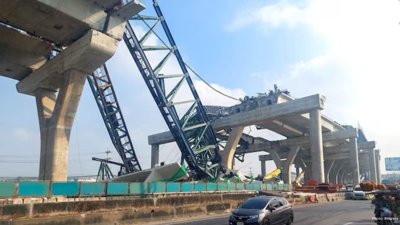
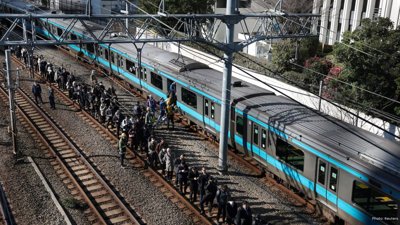
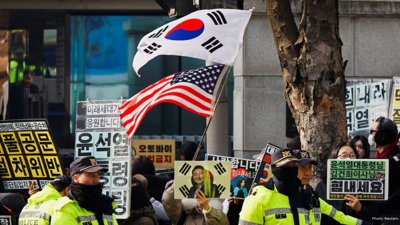
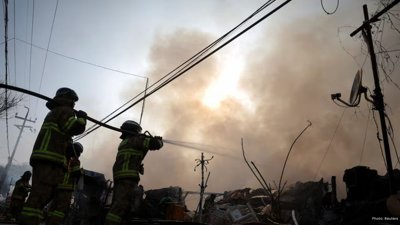
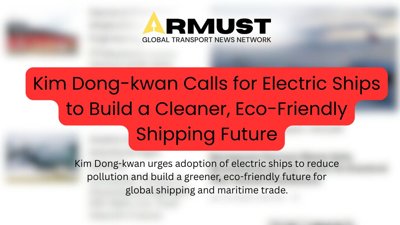
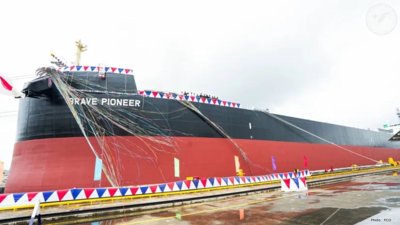




Advances in Aerospace Technology and Commercial Aviation Recovery
Insights into breakthrough aerospace technologies and commercial aviation’s recovery amid 2025 chall

Defense Modernization and Strategic Spending Trends
Explore key trends in global defense modernization and strategic military spending shaping 2025 secu

Tens of Thousands Protest in Serbia on Anniversary of Deadly Roof Collapse
Tens of thousands in Novi Sad mark a year since a deadly station roof collapse that killed 16, prote

Canada PM Carney Apologizes to Trump Over Controversial Reagan Anti-Tariff Ad
Canadian PM Mark Carney apologized to President Trump over an Ontario anti-tariff ad quoting Reagan,

The ad that stirred a hornets nest, and made Canadian PM Carney say sorry to Trump
Canadian PM Mark Carney apologizes to US President Trump after a tariff-related ad causes diplomatic

Bengaluru-Mumbai Superfast Train Approved After 30-Year Wait
Railways approves new superfast train connecting Bengaluru and Mumbai, ending a 30-year demand, easi